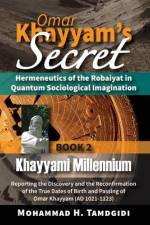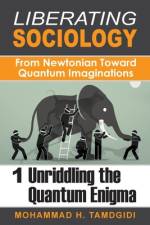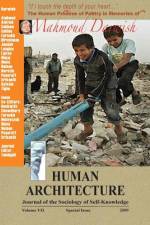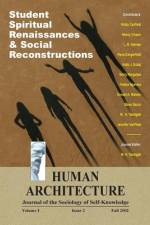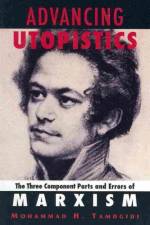av Mohammad H. Tamdgidi
385,-
[2024 Update Note: For a detailed new update on the interpretation of the Somerton man's code in the context of new findings proposed and reported in 2022 and thereafter about the identity of the Somerton man as being Carl Webb, read OKCIR's 2024 research report on the OKCIR site titled "The Somerton Man Carl Webb's WWII Death Poems Staged in His Eternal Shadow-Show "Tamám Shud" -- A Lasting J. C. Williamsonian Suicide Mystery Play Still Staging, Now Featuring Us, from the Somerton Beach in Australia Since Its Opening on Nov. 30, 1948." A press release for the same was published on April 15, 2024, titled,"Rest of Australia's Somerton Man Case Mystery Solved Using His Own Code As Deciphered in 2021, OKCIR Sociologist Reports." The 2021 publication still has evidentiary value since it documents how the 2021 deciphering of the Somerton man code, preceding 2022 findings, anticipated the 2022 proposed findings and its results.]In this OKCIR Research Report, hermeneutic sociologist, Khayyami scholar, and founding director of Omar Khayyam Center for Integrative Research (OKCIR), Mohammad H. (Behrooz) Tamdgidi, Ph.D., reports having solved the mystery of the code associated with the so-called "Somerton Man" or "Tamám Shud" case.The mysterious code appearing on the back page of a first edition copy of Edward FitzGerald's The Rubaiyat of Omar Khayyam -- found months following the death of The Somerton Man (TSM) in South Adelaide, Australia, on Dec. 1, 1948 -- was a suicide contemplation and planning note he was poetically drafting for himself in the form of a quatrain on the back of his copy of The Rubaiyat, giving a gist of why and how he planned to carry out a deliberately mystery-laden suicide as his last dance for a lasting life. The code was the creative DNA of his suicide plot.It was written in the 'Tamám Shud' transliteration style -- in this case not from Persian, but from Arabic with which he must have been familiar, either natively due to coming ancestrally from the ethnically diverse and widely multilingual Russian Caucasus and/or by training and education. In other words, the 'Tamám Shud' torn-out piece found in TSM's fob pocket not only served as a bread crumb lead to his suicide note, it also offered the key to the code's deciphering.DNA is a self-replicating matter that reproduces the basic structure of a substance. TSM's 'code' offers the DNA of his last dance performance in public hoping of a lasting life, one that was sketched amid his medical suffering. He was reflecting on his life, terminal illness, and expected imminent death, while reading the meanings conveyed about life and death in FitzGerald's translation of Omar Khayyam's Rubaiyat -- a work of art that offered TSM a practical and proven example of how one can physically die but endure in human memory and spirit forever.This report mainly focuses on deciphering TSM's code, but the findings are then used to shed brief new light on one and/or another alternative wider story of what took place in Adelaide in 1948, in the years leading to it, and in the decades thereafter. The report invites readers to rethink the relevance of Omar Khayyam's poetry to the case, and also asks a pertinent question about another fold of the mystery, that is, why did it take so long to decipher a code that could have actually been decoded much earlier?The Somerton Man or Tamám Shud case has important lessons for us beyond the confines of the personal troubles of a man and those he knew, inviting us to use our sociological imaginations to explore such troubles in relation to the public issues that concern us all beyond the shores of Australia, and beyond the national and disciplinary walls fragmenting our lives, universities, and scientific methods in favor of transcultural and transdisciplinary modes of inquiry.

